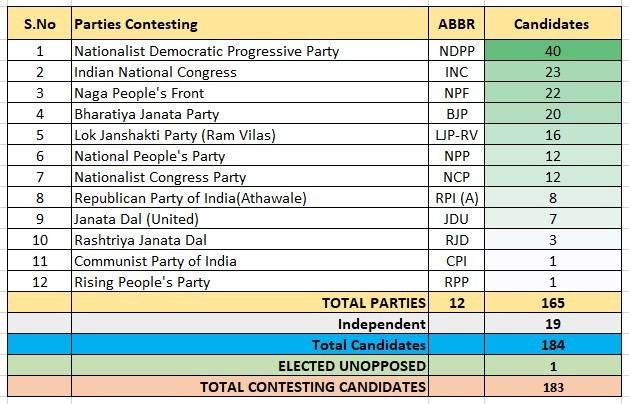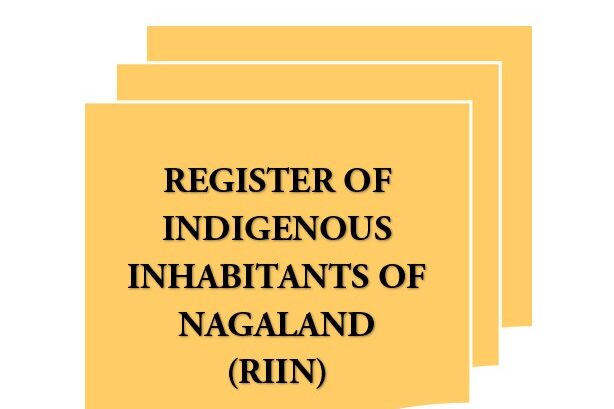Short Note on AFPSA (Armed Forces Special Powers Act)
Armed Forces (Special Powers) Act (AFSPA) is an act that grants special powers to the Armed Forces in areas that are classified as “disturbed areas”. The objective of the AFSPA is to maintain law and order in disturbed areas.
What is the AFPSA (Armed Forces Special Powers Act)?
- The AFSPA is an Act, and the name of the act is -THE ARMED FORCES (SPECIAL POWERS) ACT, 1958.
The terms ‘Law’ and ‘Act’ have certain similarities and both are used interchangeably at times. But the key difference between an Act and a Law is that an Act is passed by the legislative (Such as Parliament or State Legislative) and a law is rules and regulations enforced by the government. - The purpose of AFSPA is: To enable certain special powers to be conferred upon members of the armed forces in
disturbed areas. - “Armed Forces” according to the Act means – the military forces and the air forces operating as land forces, and includes any other armed forces of the Union so operating.
- “Disturbed area” according to the Act means an area which is for the time being declared by notification under section 3 (of the Act) to be a disturbed area.
Section 3 of the Act: Power to declare areas to be disturbed areas:
- If, in relation to any State or Union territory to which this Act extends, the Governor of that State or the Administrator of that Union territory or the Central Government, in either case, is of the opinion that the whole or any part of such State or Union territory, as the case may be, is in such a disturbed or dangerous condition that the use of armed forces in aid of the civil power is necessary, the Governor of that State or the Administrator of that Union territory or the Central Government, as the case may be, may, by notification in the Official Gazette, declare the whole or such part of such State or Union territory to be a disturbed area.
Section 4 of the act: The Special powers of the armed forces under AFSPA
Any commissioned officer, warrant officer, non- commissioned officer or any other person of equivalent rank in the armed forces may, in a disturbed area,―
(a) if he is of opinion that it is necessary so to do for the maintenance of public order, after giving such due warning as he may consider necessary, fire upon or otherwise use force, even to the causing of death, against any person who is acting in contravention of any law or order for the time being in force in the disturbed area prohibiting the assembly of five or more persons or the carrying of weapons or of things capable of being used as weapons or of fire-arms, ammunition or explosive substances;
(b) if he is of opinion that it is necessary so to do, destroy any arms dump, prepared or fortified position or shelter from which armed attacks are made or are likely to be made or are attempted to be made, or any structure used as a training camp for armed volunteers or utilised as a hide-out by armed gangs or absconders wanted for any offence;
(c) arrest, without warrant, any person who has committed a cognizable offence or against whom a reasonable suspicion exists that he has committed or is about to commit a cognizable offence and may use such force as may be necessary to effect the arrest;
(d) enter and search without warrant any premises to make any such arrest as aforesaid or to recover any person believed to be wrongfully restrained or confined or any property reasonably suspected to be stolen property or any arms, ammunition or explosive substances believed to be unlawfully kept in such premises, and may for that purpose use such force as may be necessary.
5. Arrested persons to be made over to the police.―Any person arrested and taken into custody under this Act shall be made over to the officer in charge of the nearest police station with the least possible delay, together with a report of the circumstances occasioning the arrest.
6. Protection to persons acting under Act.―No prosecution, suit or other legal proceeding shall be instituted, except with the previous sanction of the Central Government, against any person in respect of anything done or purported to be done in exercise of the powers conferred by this Act
What are the ingredients of the AFSPA?
- AFSPA gives special powers to the armed forces in areas declared as “disturbed” areas.
- An area has to be declared/notified as ‘Disturbed Area’ for AFSPA to be applicable.
The Ministry of Home Affairs, Govt. of India, declares whether an area is disturbed or not depending on the assessment of law and order and internet security concerns. - The armed forces can fire upon or otherwise use force, even to the causing of death, against any person who is acting in contravention of any law or order for the time being in force.
- The armed forces can “arrest a person without a warrant”, who has committed or is even “about to commit a cognizable offence” even based on “reasonable suspicion”.
- The armed forces can “search any place without warrant”, to make the arrest as stated above, or to search for stolen property or any arms or ammunications believed to be unlawfully kept in such premise.
- The security forces are to hand over the arrested persons to the nearest police station with the least possible delay.
- AFSPA also provides legal immunity to the security forces for their actions in disturbed areas. If required, prior sanction of the Central Government is necessary.
Origin of AFSPA
- The AFSPA existed before the independence of India from the British. AFSPA was first enacted as an ordinance in the backdrop of the Quit India Movement launched by Mahatma Gandhi in 1942. Due to the widespread violence across the country, the then Viceroy Linlithgow promulgated the Armed Forces (Special Powers) Ordinance, 1942.
- On similar lines, the Indian government promulgated four ordinances in 1947 to deal with internal security issues and unrest arising due to partition in four provinces Bengal, Assam, East Bengal and the United Provinces.
- The Indian Parliament has enacted three different AFSPA acts under AFSPA for different regions:
1. Armed Forces Special Powers (Assam and Manipur) Act, 1958
- This was the first AFSPA (Act) to be enacted to deal with the Naga insurgency in the Assam region.
- In order to deal with the situation, the Assam government imposed the Assam Maintenance of Public Order (Autonomous District) Act in the Naga Hills in 1953 and intensified police action against the rebels. When the situation worsened, the state government of Assam deployed the Assam Rifles in the Naga Hills and enacted the Assam Disturbed Areas Act of 1955, thus providing a legal framework for the paramilitary forces and the state police forces to combat insurgency in the region. But the Assam Rifles and the state police forces could not contain the Naga rebellion and the rebel Naga Nationalist Council (NNC) set up a parallel government in 1956.
- To tackle this threat, The Armed Forces (Assam and Manipur) Special Powers Ordinance 1958 was promulgated by President Dr. Rajendra Prasad on 22 May 1958. It was later replaced by the Armed Forces (Assam and Manipur) Special Powers Act of 1958.
- It was later extended to all North-Eastern states.
2. The Armed Forces (Punjab and Chandigarh) Special Powers Act, 1983
- The central government enacted the Armed Forces (Punjab and Chandigarh) Special Powers Act in 1983, to combat the Khalistan movement in the 1980s.
- As the Khalistan movement died down AFSPA was withdrawn in 1997, roughly 14 years after it came to force.
3. The Armed Forces (Jammu and Kashmir) Special Powers Act, 1990
- The AFSPA in Jammu & Kashmir was enacted in 1990 in order to tackle the unprecedented rise in militancy and insurgency in Jammu and Kashmir.
AFSPA in Nagaland
- The AFSPA (Act) first came into being in 1958 to tackle the Naga insurgency. The AFSPA has been in force in Nagaland for several decades since then.
- As of April 2022, AFSPA was removed from 15 police stations in seven districts of Nagaland. This comes after the government accepted the recommendation of a high-level committee formed in the aftermath of the Mon killings. Three districts – Tuensang, Tseminyu and Shamator districts are completed out of AFSPA. The status of AFSPA in April 2022 is as shown in the table below.

In terms of police stations, the status as in April 2022 was:
- Police Stations Not under AFSPA: 15
- Police Stations Under AFSPA: 57
Criticism of AFSPA
While some believe that the armed forces need special powers to operate more effectively in counter insurgency areas, it is also debated that the powers granted to the armed forces with immunity from punitive actions leads to misuse of power and violation of human rights. The criticism emerges when there are incidents of such human right violations and misuse of power from time to time.
The following are some of the points on which AFSPA is being criticised.
- Human Rights violations due to alleged custodial rape and unjustified killings. The act reinforces a militarized approach to security which sometimes prove to be not only inefficient but, also counterproductive in tackling security challenges.
- Misuse of Power: The AFSPA empowers the armed forces with powers to the extend of causing death to a person on mere suspicion – which in tense situations can be misused or misjudged.
- Violation of Fundamental Rights: The power of arbitrary arrest and detention given to the armed forces goes against the fundamental right vested in Article 22, which provides safeguards for preventive and punitive detentions. The Supreme Court has clearly stated that the person arrested has to be submitted to the court within 24hrs of the FIR in the case of arrests made by the police.
- Immunity from legal proceedings: While the AFSPA grants ‘special powers’ to the armed forces, they are also granted immunity from any proceedings. This immunity also facilitates the armed forces to take unwarranted decisions at times – and it becomes questionable.



Leave a Comment (FB)